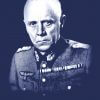Prof. Dr. Michael Vogt, born in 1953, is a distinguished figure in Germany, having studied history, German studies, and political sciences in Munich. Transitioning from academia, he embarked on a multifaceted career as a journalist, filmmaker, and lecturer in media and communication sciences. In 2013, he launched the internet platform “quer-denken.tv,” addressing a wide array of topics. In an interview for Compact magazine, Prof. Vogt delved into his controversial documentary on the mysterious flight of Rudolf Hess, Hitler’s deputy, shedding light on suppressed historical truths and challenging conventional narratives.
Challenging Historical Narratives
Prof. Vogt initiated the interview by recalling his 2004 documentary on Rudolf Hess’s enigmatic flight to England, broadcast seven times on n-tv. He highlighted how the film challenged entrenched German post-war taboos, specifically questioning the nation’s sole responsibility for World War II and exposing Churchill’s wartime policies. Vogt underscored the documentary’s central themes, emphasizing the need to challenge prevailing historical narratives and the suppression of inconvenient truths.
“Friedensvorschläge” and British Intransigence
The interview delved into the findings of British historian Martin Allen, revealing secret archives detailing German peace initiatives towards England. Vogt argued that these proposals, including the evacuation of occupied territories and reparations, could have averted Britain’s entry into the war. He accused Churchill of pursuing a policy of unconditional war expansion and denounced the refusal to negotiate with German resistance figures like Carl Friedrich Goerdeler.
Churchill’s Motivations
Prof. Vogt criticized Churchill and his key strategist, Robert Vansittart, labeling their motives as chauvinistic and racist. He argued that Churchill’s focus was not solely on defeating the Nazis but on the destruction of Germany as an ethnic entity. The interview emphasized the tragic consequence of dismissing peace initiatives from German resistance figures, like Goerdeler, in 1941.
Suppression of Truth and Mysterious Deaths
The interview explored the suppression of truth surrounding Rudolf Hess’s flight, with allegations of British intelligence interference in the Nuremberg Trials. Prof. Vogt detailed the mysterious deaths of key figures, such as Professor Karl Haushofer, associated with the Hess case. He raised questions about the credibility of the official account of Hess’s death in 1987, suggesting the possibility of murder rather than suicide. (see also “Rudolf Hess his betrayal and murder” here)
Closed Archives and Falsification Claims
Prof. Vogt expressed suspicion regarding the extended closure of relevant archives in London, hinting at potential cover-ups. He addressed claims of document falsification against Martin Allen, asserting that even if proven true, they wouldn’t negate the core assertion of multiple detailed peace offers being rejected by Churchill.
Prof. Dr. Michael Vogt concluded the interview by defending the pursuit of truth, despite facing increasing repression in a less tolerant society. He argued for the freedom of thought and expression in academic research, stating that science inherently involves revisionism as new evidence emerges. Vogt urged against the suppression of inconvenient findings and emphasized the importance of embracing diverse perspectives for a genuine pursuit of knowledge.
Vogt’s film:



